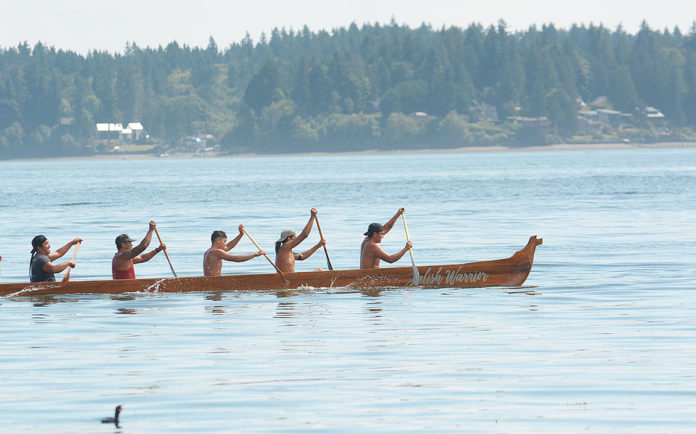SUQUAMISH, WA – The Suquamish Tribe will welcome visitors to join members of the tribal community at the annual Chief Seattle Days in Suquamish Aug. 18-20. After three years of a much-reduced celebration, Chief Seattle Days is back, open to the public with a wide range of activities in honor of the tribe’s most famous leader.
As in the years before the pandemic, the weekend celebration will feature canoe races, a softball tournament, a 5K fun run, the tribe’s famous grilled salmon, vendors selling foods and crafts, a Chief Seattle Days royalty pageant, and a golf tournament. And as happens each year, there will be a special commemoration at Chief Seattle’s gravesite, led by tribal elders and attended by community leaders and tribal members. This event continues the tribe’s long-standing tradition of honoring one of their most important leaders, the namesake of the city of Seattle.
Chief Seattle Days began in 1911 to honor Chief Seattle and the Suquamish people. As the celebration grew, a gravesite ceremony was added and continues to this day. During the gravesite ceremony, the tribe practices their traditions, invite people to tell stories, and remind people of the history of Chief Seattle and the Suquamish people.
The Suquamish Tribe is one of the tribal groups that were parties to the Treaty of Point Elliott, signed near Mukilteo, on north Puget Sound, on January 22, 1855. This document was the second of five treaties that Territorial Governor Isaac Stevens negotiated with tribes in western Washington.
Representing both the Suquamish and Duwamish tribes at the treaty signing was Chief Seattle, along with many sub-chiefs and leaders of other tribes. The Suquamish gave up title to their lands, which encompassed most of present Kitsap County, for acknowledgement and protection of their fishing and hunting rights, health care, education, and a reservation at Port Madison, where Chief Seattle lived for much of his life and where he is buried.














































